In this article we review the all new flagship dongle DAC/Amp from the Chinese brand, the FiiO KA17, priced at just $149 USD.
Disclaimer: The FiiO KA17 was sent to us, free of charge, by the brand in exchange for our honest opinion.
About FiiO
Established in 2007, FiiO has become a powerhouse in the audiophile realm, offering an impressive line-up of affordable and high-quality products. From IEMs, headphone amps, DACs, to DAPs, FiiO has consistently delivered top-notch devices, setting benchmarks for other brands to follow like the FiiO M11 Plus, the mighty FiiO Q7, or the everlasting E10K, which has remained on the market for over a decade.
An unceasing saga of success, propelled not only by a steady flow of high-end devices but also by the introduction of smart, budget-friendly products. Their latest series of USB DAC/Amps is a prime example—compact dongle-sized gadgets that hark back to the venerable FiiO E5 and E3, first revealed over a decade ago. An expansive range that includes the delightful FiiO KA3, the formidable FiiO KA5, the diminutive FiiO KA1 and KA2, and the lovely KA13 we had the chance to listen to a few weeks ago.
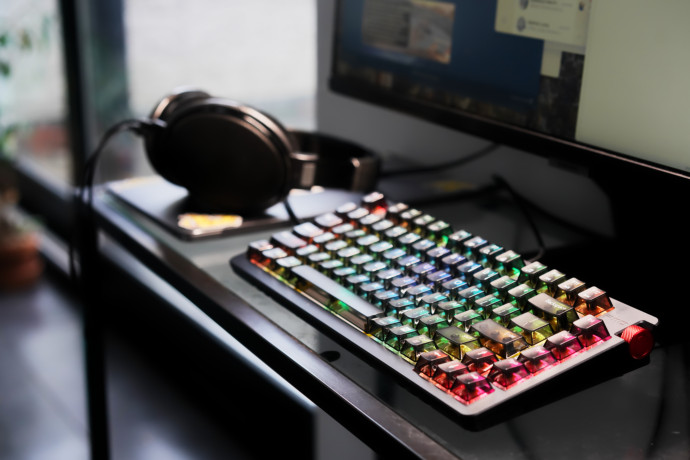
And if that line-up already seemed very complete to me, the brand still decided to go a step further, unveiling the whole new FiiO KA17. Another dongle-sized DAC/Amp blending features from its siblings, like an OLED display, and ESS chips instead of Cirrus-Logic or AKM, while incorporating the new nomenclature and a “desktop mode” directly inherited from the Q7 and M17.
Enough to be a new reference? That’s what we’ll discover today
Not a Jade Audio (!)
Unlike the KA1 or KA13, the new FiiO KA17 isn’t part of the Jade Audio lineup, but figures in the classic FiiO range – like the M15S, or Q15. But, out of convenience, I still decided to integrate the KA17 in my usual Jade Audio listing, so you can see where it ends in that line-up.
A quick resume from the brand, so we can all get the same info:
“Jade Audio” is a subsidiary brand of FiiO Electronics Technology Co., LTD. It is a stylish, technological, and youth-oriented brand aiming to provide high-quality yet cost-effective audio products with an excellent listening experience for the younger generation all around the world. The entity’s Chinese name is derived from “翡声” (Fei Sheng), meaning “the sound of Jade”. The name “Jade Audio” conveys our mission towards providing consumers with a crisp and pleasant listening experience while maintaining audio fidelity
As a matter of fact, there are now more and more Jade Audio devices such as:
- FiiO KA1 : a DAC/Amp with a single ES9281AC Pro chip (reviewed)
- FiiO KA2 : a DAC/Amp with a dual CS43131 chip (reviewed)
- FiiO KA3 : a DAC/Amp with a single ES9038Q2M Pro chip (reviewed)
- FiiO KA5 : a DAC/Amp with a dual CS43198 chip (reviewed)
- FiiO KA13 : a DAC/Amp with a dual CS43198 chip (reviewed)
- FiiO KA17 : a DAC/AMP with a dual ES9068Q chip (today’s review)
- FiiO FF3 : a new-gen earbud with a 14.2mm large dynamic driver (reviewed)
- FiiO FF5 : same but different earbud with a 14.2mm large dynamic driver (reviewed)
- FiiO Q11 : a portable DAC/AMP with a battery, replacing the Q3 (reviewed)
- FiiO JW1 : a new-gen earbud, wireless (reviewed)
- FiiO JH5 : an hybrid IEM packing 1 DD and 4BA (reviewed)
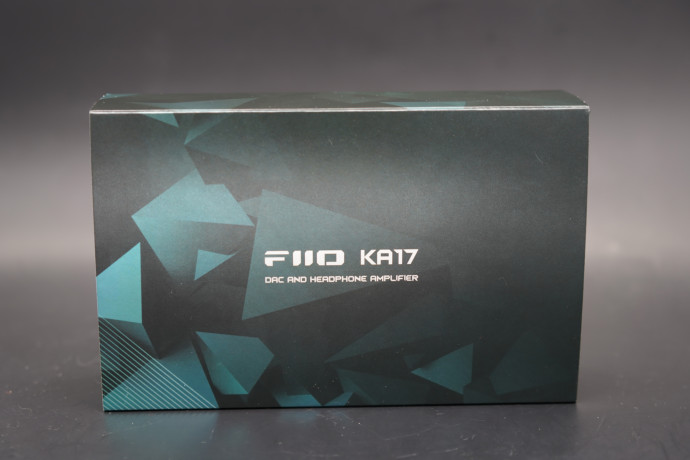
Design & Build Quality
Casing
Blending the visual features of the KA5 and the KA13, the FiiO KA17 looks even more geekier.
Bigger and bolder, the new DAC/AMP ditched the rugged design of the KA5, and took the same cross-labelled aluminum unibody case seen on the KA13, slightly elongated and widened .End to end, the KA17 is now 64 mm long, 27.7 mm wide, 12.7mm thick, and 33.5g heavy, making it 7 mm longer, 2mm wider and 15g heavier (a 50% increase !) than the KA13 – still supremely portable.
To those measurements, you can add the USB-C cable, or USB-C to 8-Pin (not provided) if you’re using an iPhone like me. Thanks to that, the DAC can easily be carried in a jean’s pocket, a jacket, or simply stick to your phone if you’re ok with QI-wireless charging.
The cherry on top? Like the KA5 this new model now comes with an OLED screen, located on the upper part of the DAC/AMP, covered by a glass-tempered screen – like the KA13, which allowed you to see its inner circuit. Due to that, from afar, you could easily mistake the DAC for a crypto-wallet like a Ledger, or a rugged USB-thumb from Corsair or Kingston. A geeky design that I’m completely fond of, as you may know now.
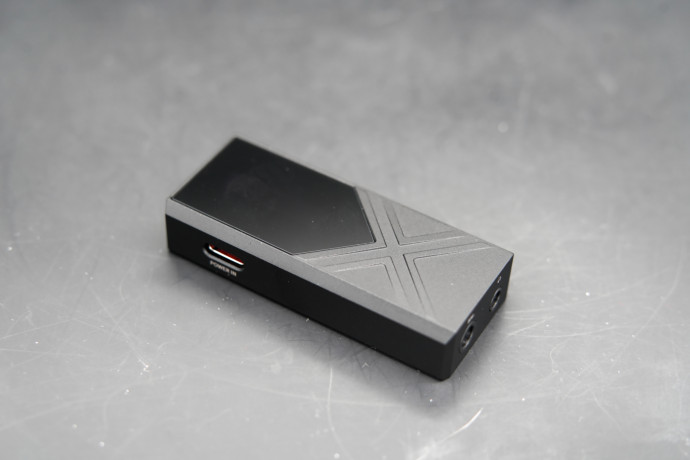
Build Quality
Like every product recently released by the brand, the FiiO KA17 is absolutely flawless in this regard. Deep blue anodized aluminum, blacked out 4.4mm Pentaconn and 3.5mm output, screw-less design, and clicky buttons everywhere that look and feel amazing to touch.
Same goes for the OLED screen, that recalls the E17 and E17K era – or more recently the FiiO BTR7 – and really gives a super premium feeling to the whole design. The fonts are crisp, surprisingly readable under the sunlight and the simple fact that you could get so many info on a device this small, remains a feat on its own.
In hand, the result is even more impressive, thanks to that slick body and smooth edges. You could definitely drop it, or step on it, and it shall come out unscathed (I don’t recommend any of that of course). Even the new multifunction button and volume controls on the side click the right way, and I’m glad to see that more and more dongles now come with those kinds of controls.
All in all, a very solid piece of work that inspires confidence and really gives a good impression.
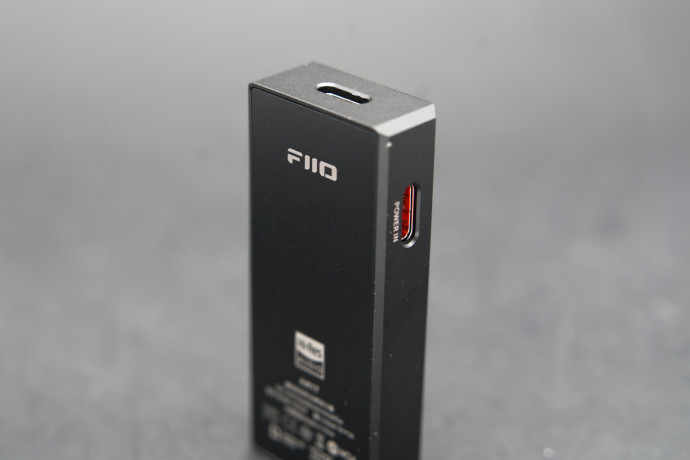
Comfort and Specifications
Daily use
As usual, the FiiO KA17 is extremely simple to use.
You plug it into your phone, tablet, computer, insert your headphone jack, and you’re good to go. There were no issues with my iPhone 13 Pro Max + TC28i + USB-C cable + KA17, nor with the USB-Lightning cable I borrowed from the KA5 bundle now that FiiO stopped providing USB-C->8-Pin cables. Same with my MacBook and computer: each time, the FiiO KA17 was immediately recognized by the source, and music came out almost instantly. On Windows, I had to wait a minute, until the OS got the right driver but after that, it worked flawlessly.
Like the KA13 and the HiBy FC4, there are now volume controls on the KA17 allowing you to handle that aspect, directly from the device. A feature that I’m really glad to see on more and more DAC/Amp, making them so much easier to control on the go. The OLED display comes in addition. Elegantly integrated under a glass top plate, this screen provides information regarding the volume level, playback quality, gain level or even the roll-off. It’s quite neat and I was surprised by how sharp it looks in real-life, a good upgrade from the previous LED ring.
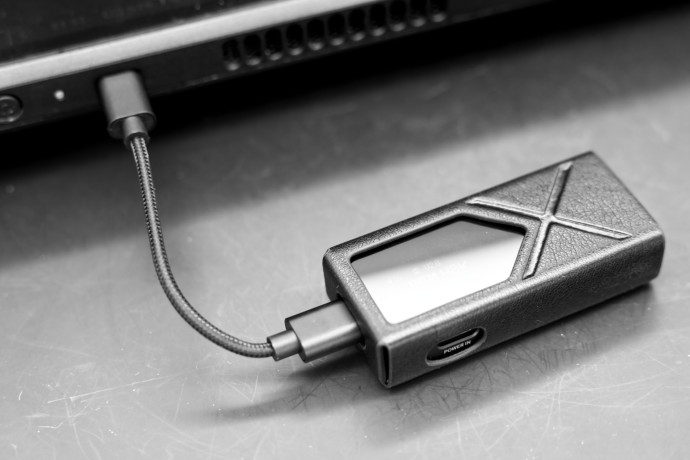
You can also access some settings straight from the device, and fine-tune them even more through the dedicated FiiO apps (not for iOS) (balance, volume, or digital filters).
On the go, it’s a pleasant device to use, and the dual headphone output is a true blessing, like the iBasso DC04Pro, that allowed me to test various headphones, even when I forgot my adapters. Just remember that the FiiO KA17 comes with a 3.5mm port and a 4.4mm Pentaconn, so no 2.5mm TRRS here, unless you take an adapter. To my surprise, unlike the KA5, the 3.5mm output doesn’t double as a SPDIF one, so no digital out!
Last but not least, the KA17 now comes with a secondary USB input, solely dedicated to power supply, unlocking additional features like: higher power output, lower distortion and better performances overall. An interesting quirk, that comes in addition to the separate digital/analog boards – but more on that in the next section.
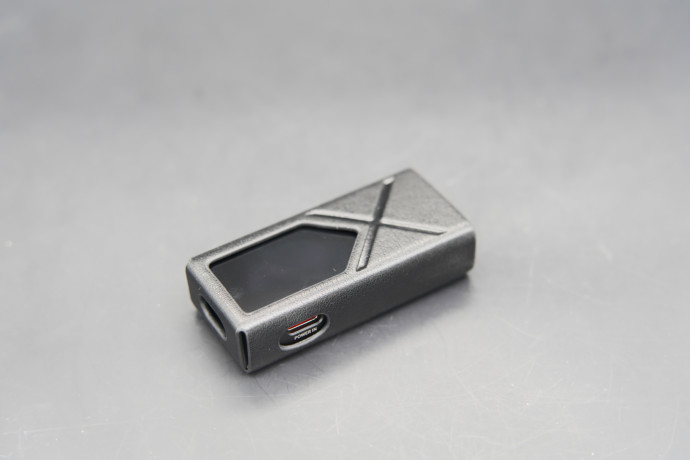
Bundle and Accessories
Inside the box
Like the KA5, the FiiO KA17 doesn’t come with an extensive bundle, but FiiO being FiiO, it’s not too bad either. In the box you’ll find:
- the FiiO KA17
- an USB-C to USB-C cable
- 2 sets of dustproof plug cover
- a lovely leatherette case
- and an USB-A to USB-C adapter
And, if I do find the leatherette case attractive looking, I still think that the KA17 looks better on its own.
Additional accessories
As DAC/Amp, there are many accessories that you could add to your JH5:
- a good pair of headphones or IEM (check or guides)
- a good source like a modern smartphone or an entry-level DAP
You could also get a better USB-C cable, like the ones from ddHiFi, but that’s another debate!
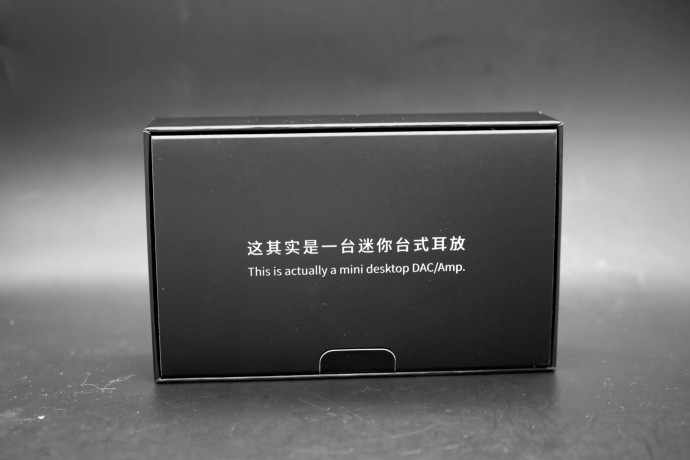
Specifications
Dual ES9069Q DAC + THX-AAA
Like the FiiO KA3 at the heart of the FiiO KA17, you’ll find a set of dual ESS Sabre , but higher end models : ES9069Q
A DAC designed for professional applications first (mixer, consoles, digital audio workstation) advertised as a high-performance 32-bit, 2-channel audio D/A converter delivering “a performance level that will satisfy the most demanding audiophile and pro-audio enthusiast”.
And, as an evolution from the previous ES9068, this new DAC fits in the upper range of the manufacturer line-up with features like:
- Hyper-stream IV support
- 130 dBA dynamic range
- 390 ohms output resistance
- hardware mode for maximum control over I2C/SPI programming
- TDM and SPI support for more options in terms of connectivity
And thanks to FiiO engineering plus the XMOS XU316 chip, you can add:
- up to 32bits / 768kHz PCM and DSD512 decoding
- desktop mode with the additional USB-C port
- UAC 2.0 and UAC 1.0 support, for devices like game consoles
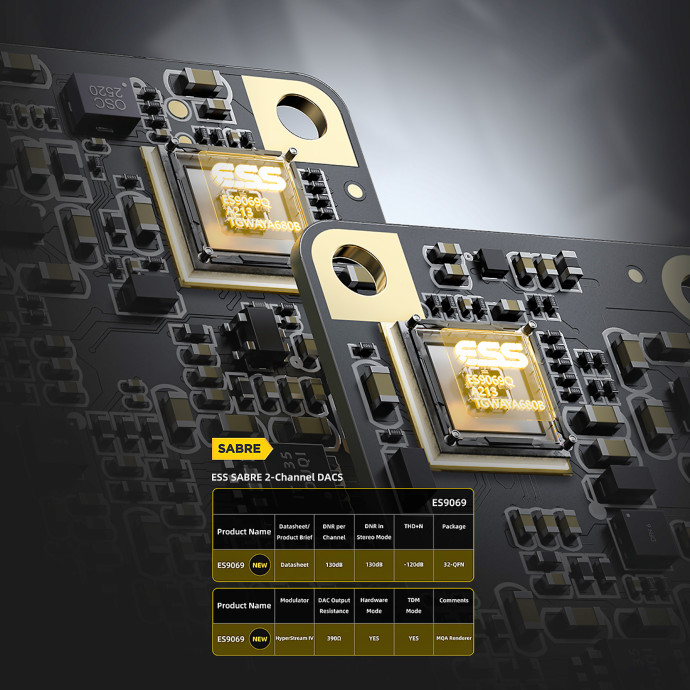
An impressive layout already, but FiiO decided to crank things a little higher with the inclusion of a multistage balanced THX-AAA 78+ analog pre-amp and power amp. circuit boosted by a 3-stage 10-rail power supply design, ensuring stable power, for consistent results through and through.
“Uncompromised audio quality with a carefully engineered multi-chip audio circuit” designed to output the best possible sound with features like the separate circuit boards, where the digital and analog portions of the circuit lie on totally separate panel – for total isolation.
The big plus remains the ability to unleash the full power of the amp, with the dedicated desktop mode – available when the two USB-C port are used. With that, the KA17 unlocks two additional THX amp modules, doubling the output power, allowing the amp to reach up to 650mW per channel – in balanced mode. Impressive!
The article continues on Page Two, after the click here






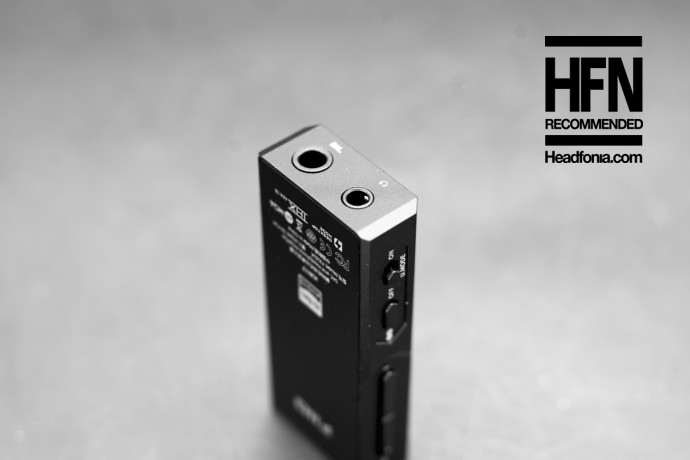


György Kurucz
Can you compare with cayin ru7? Which better dongle?
Juan
From a technical perspective, the sound quality, imaging accuration, layering, separation, details, and soundstage are better and wider, more open and airy than my Mojo 1.
Nikolaus
How is Fiio KA17 vs Fiio BTR7?
Xxxstarmanxxx
Incorrect. Spdif is available via 3.5mm se.
Silvestro
How does it compare to a Bluetooth like btr15 or BTR7? Thanks
Boris
How does the PEQ work on the KA17? Do I have to open the FiiO app every time I use it to toggle EQ on, or are my presets stored automatically in the device?
And more generally… does the PEQ work? Does it negatively impact sound quality?
J
Will it be able to drive HiFiMan Edition XS?
William T
There is a mistake in this paragraph. It references the wrong model number.
“On top of that, and as promised in the product sheet, the KA5 is absolutely dead silent, even with sensitive IEMs like the FiiO FA7S. That may be the dual boa”
Lieven
Thank you, corrected
JIGF
is that balanced mode actually balanced? i thought that only works with xlr, right? pseudo-balanced, perhaps?
Eduardo
What would be a good IN-EAR with neutral signature for this dongle, costing $150 or less?
JIGF
I’d say the moondrop stellaris. I’m planning on getting it along with the KA17. Seems like the budget rig to rule them all.
JIGF
*end game* budget rig to rule them all
Paolo Gramaglia
Spot on. The difference between ka17 (with my easy-to-drive Fidelio x3) and a Qudelix, a Btr15, a xd2 Bal is SUCH! Thickness, intensity, intellegibility, timbre, expressiveness. Humanity in a word. No need to go further.